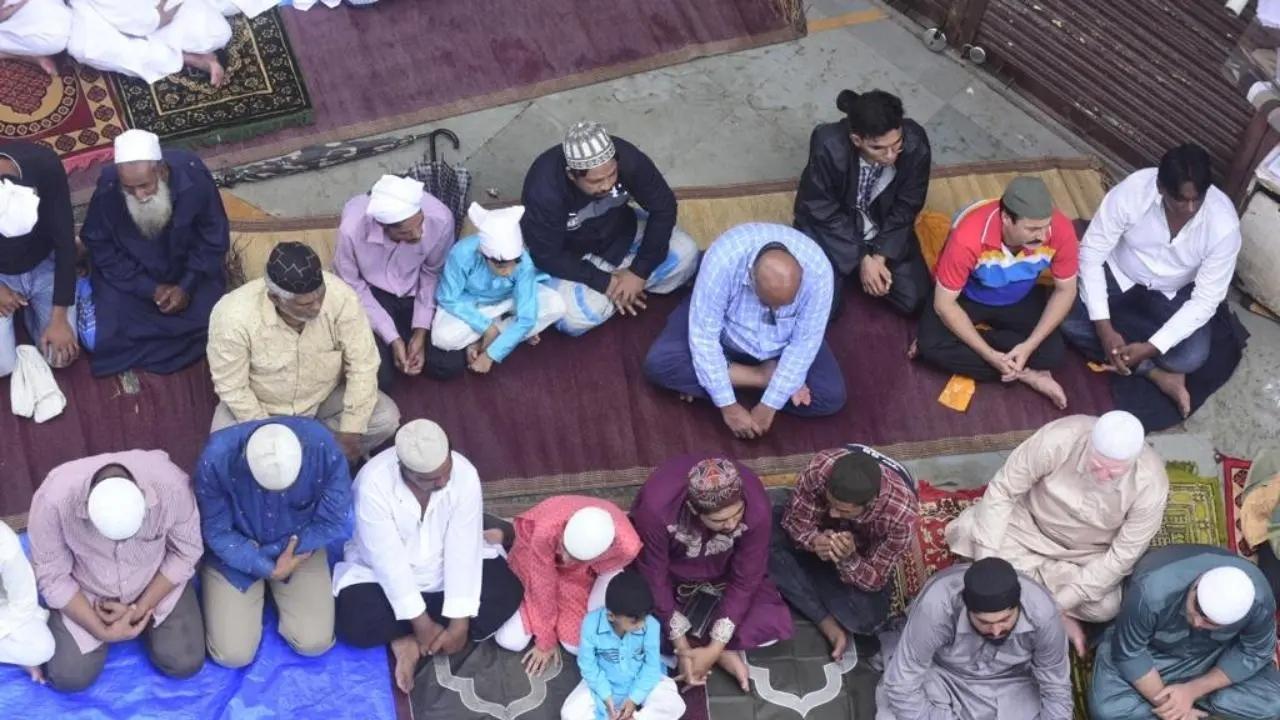Muslims across the world celebrate Bakri Eid with immense devotion and joy

File Pic/Atul Kamble
Bakri Eid, also known as Eid al-Adha or the Festival of Sacrifice, holds great historical and cultural significance for Muslims around the world. This annual Islamic festival commemorates the willingness of Prophet Ibrahim to sacrifice his son as an act of obedience to God.
The history of Bakri Eid dates back to thousands of years ago, when Prophet Ibrahim received a divine command to sacrifice his beloved son, Ismail. As Ibrahim prepared to carry out the sacrifice, Allah intervened and provided a ram as a substitute for Ismail. This event symbolizes the ultimate act of submission to God's will.
Muslims celebrate Bakri Eid with immense devotion and joy. The festivities begin with congregational prayers held in mosques or open grounds. People dress in their finest attire and gather for the Eid prayers. It is a time for worship and gratitude towards Allah.
The spirit of sacrifice is central to Bakri Eid. Following the prayers, Muslims across the world who can afford it, sacrifice a sheep or a goat, to emulate Prophet Ibrahim's obedience. The meat from the sacrificed animal is divided into three parts: one for the family, one for relatives and friends, and one for the less fortunate. This act of sharing reflects the values of generosity and compassion.
Beyond the religious aspects, Bakri Eid is a time for family reunions and social gatherings. People exchange greetings and visit each other's homes, where delicious feasts are prepared. Traditional dishes and sweets, such as biryani, kebabs, and sheer khurma, are shared and enjoyed together.
Bakri Eid carries immense cultural significance, fostering unity and solidarity among Muslim communities worldwide. It promotes values of sacrifice, gratitude, and caring for others. The festival serves as a reminder of the importance of faith, obedience, and compassion in one's life.
Bakri Eid is a significant religious and cultural celebration for Muslims. It commemorates the story of Prophet Ibrahim's sacrifice and emphasizes the values of obedience, generosity, and unity. The festival brings families and communities together, fostering a sense of joy, gratitude, and compassion.
 Subscribe today by clicking the link and stay updated with the latest news!" Click here!
Subscribe today by clicking the link and stay updated with the latest news!" Click here!








